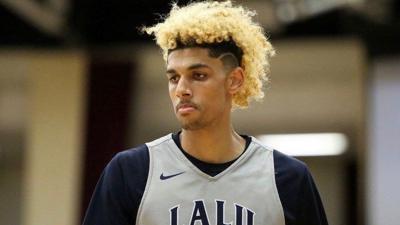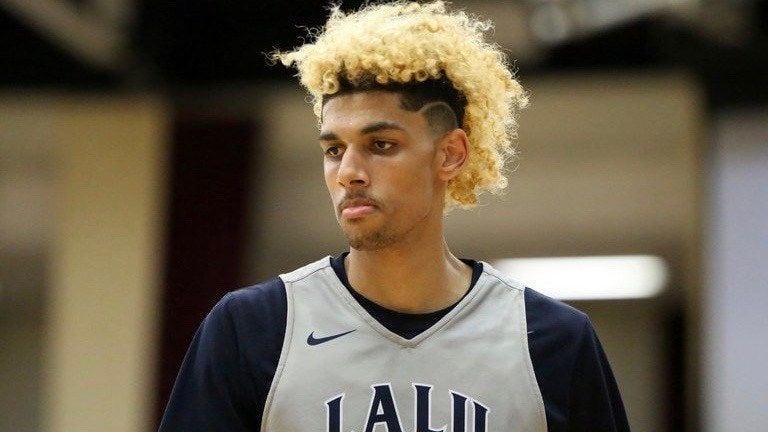LOUISVILLE, Ky. (WDRB) -- Former Louisville basketball commit Brian Bowen asked the U.S. Supreme Court to hear a lawsuit dismissed against Adidas and other key figures in the college basketball bribery scandal, citing a recent ruling by the high court that was favorable for student-athletes.
One of the reasons Bowen's 2018 racketeering lawsuit was dismissed by federal appeals judges was that his claim of lost earnings was not deemed an "injury to his business or property" and thus not relevant to the RICO injury requirements. In a Feb. 20 petition, Bowen and his South Carolina attorneys argue, in part, that a 2021 Supreme Court opinion ruled that participating in college athletics is a business to young athletes who devote their labor to it, making billions of dollars for the NCAA.
If the high court agrees to hear the case, it could prompt more discussion of whether the NCAA should be paying its student-athletes.
Bowen's attorneys argued the issues in this case "are of exceptional importance to the over 500,000 student-athletes presently participating in NCAA athletics nationwide" and asks the high court to "prevent the further exploitation of student-athletes."
Bowen enrolled at U of L in 2017 — after his father was promised $100,000 — but never played a game after he was linked to the federal investigation into college basketball corruption.
His lawsuit claimed the Adidas scandal cost Bowen his eligibility, hurt his earning potential and robbed him of the chance to be a high NBA draft pick.
The FBI's investigation led to the conviction of an Adidas employee and others for wire fraud and conspiracy.
Bowen's racketeering lawsuit was dismissed by a federal judge in 2021 who ruled Bowen could not prove he had been directly harmed by the shoe company's actions as there was no guarantee he would have gone on to a successful professional basketball career.
U.S. District Court Judge Joseph Anderson ruled that while Bowen's life was "upended" by the revelations that his father was paid by Adidas employees and his college basketball career at U of L ended, his claim of lost professional earnings was a "mere expectation" and not a sufficient requirement of injury to business or property necessary under a RICO filing.
The U.S. Court of Appeals for the 4th Circuit agreed in a 2-1 ruling last year, finding that Bowen's loss of "coveted athletic services" did not amount to a business or property interest and that he continued to receive a scholarship, the maximum compensation allowed at the time to student athletes.
The lone dissenting judge argued "it is absurd to say that a person can be left without a market for his labor without sustaining a business or property injury."
The Feb. 20 petition to the high court argues, in part, that the 2021 Supreme Courts case of NCAA v. Alston ruled student-athletes could be compensated for education-related expenses and "have nowhere else to sell their labor" other than to NCAA athletic programs.
In other words, without other comparable options to develop their skills to go pro, "athletes have a valuable business or property interest in their NCAA eligibility," Bowen's attorneys argue.
"Brian's athletic career – exchanging his basketball labor for valuable athletic benefits found only at top NCAA Division I programs" that include "world class coaching, elite competition, and playing on a national state in front of audiences of millions" qualifies the case for a RICO claim, according to the petition.
While the NCAA vs. Alston opinion didn't rule the payers should be paid to play, Justice Brent Kavanaugh wrote in a concurring opinion that "seemingly everyone" in the NCAA is raking in "enormous sums of money" except student-athletes.
"The bottom line is that the NCAA and its member colleges are suppressing the pay of student athletes who collectively generate billions of dollars in revenues for colleges every year," Kavanaugh wrote. "But the student athletes who generate the revenues, many of whom are African American and from lower-income background, end up with little or nothing."
Adidas has argued there is no evidence the company aided or approved the payments to Bowen, claiming "a few" of its employees specifically discussed concealing the plan to secure funds used to land recruits.
Attorneys for Adidas had asked a judge to dismiss the suit, in part, because of the admission by Bowen's father to taking money to secure his son's commitment is what derailed his son's career.
Brian Bowen Coverage:
- CRAWFORD | A long time coming: Tom Jurich talks U of L years, final months, and NCAA vindication
- Louisville, Pitino escape major penalties in 5-year NCAA recruiting investigation
- CRAWFORD | 5 key takeaways from the IARP's 105-page ruling on Louisville
- Judge dismisses Brian Bowen's lawsuit against Adidas
Copyright 2024 WDRB Media. All Rights Reserved.














